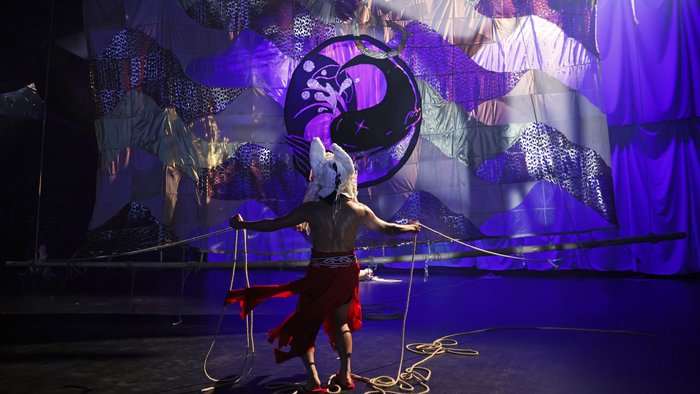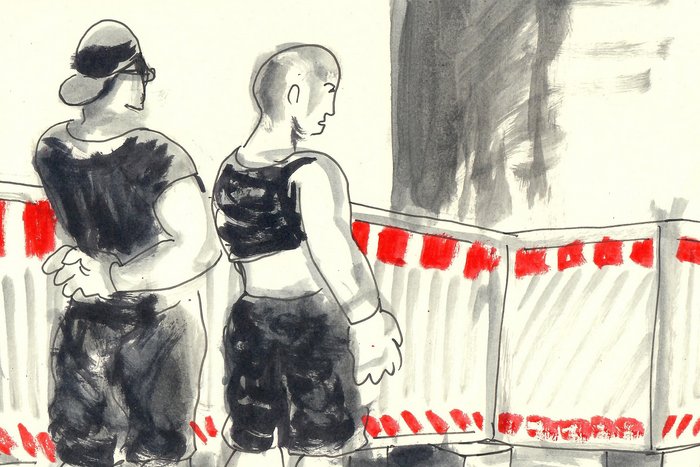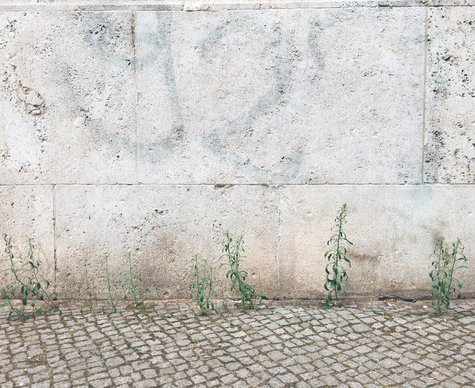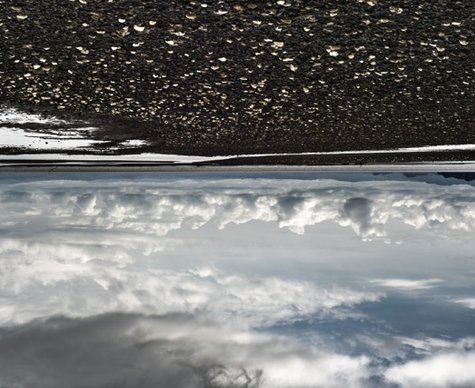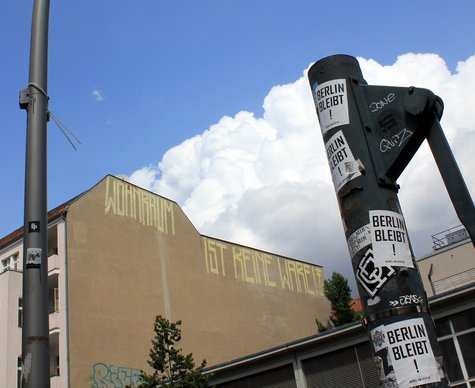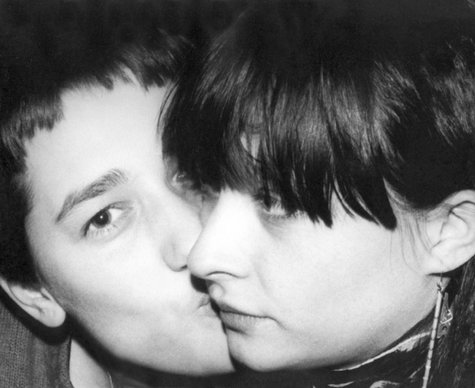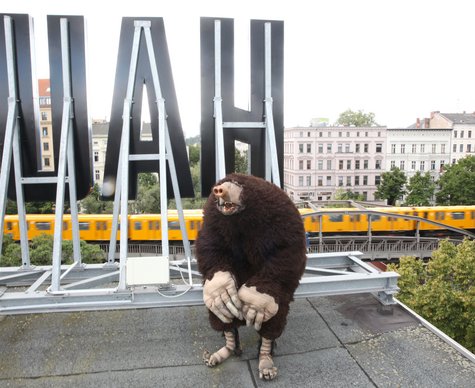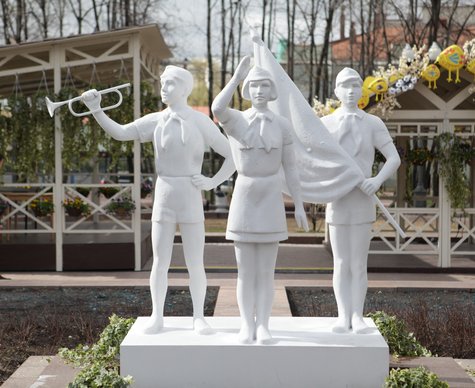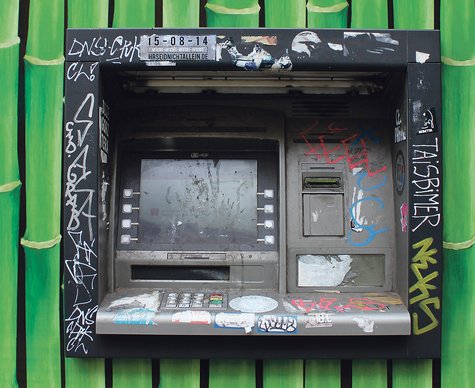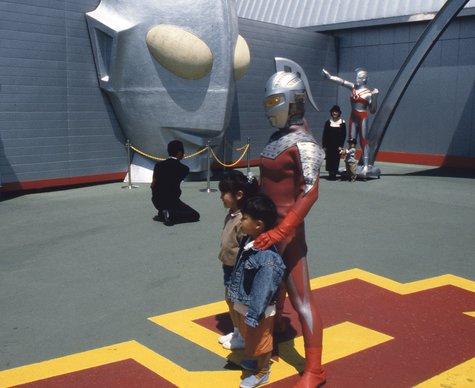Positions, Projects, Publications
Up-to-date texts, themes and artist’s voices from HAU, about HAU
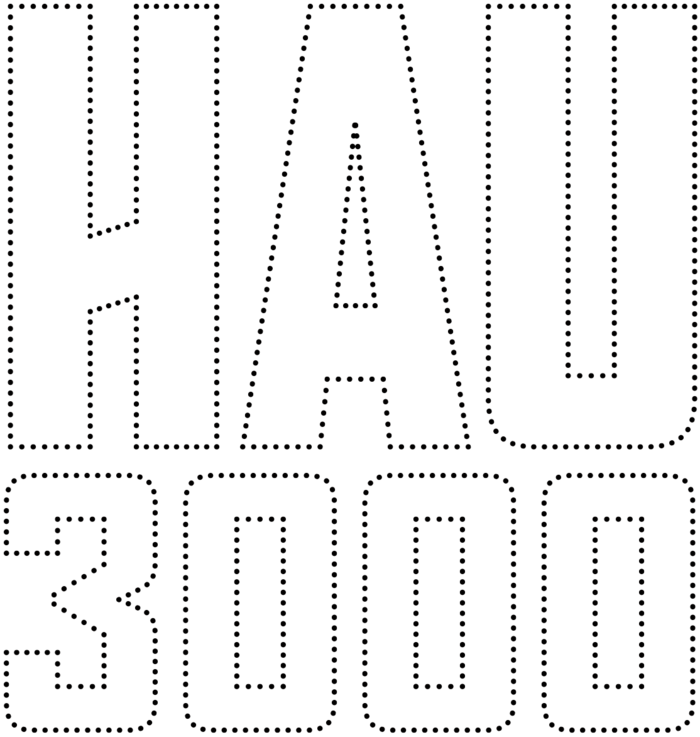
The online magazine by HAU
Every Day: Feminist Struggles in Post-Socialist Europe
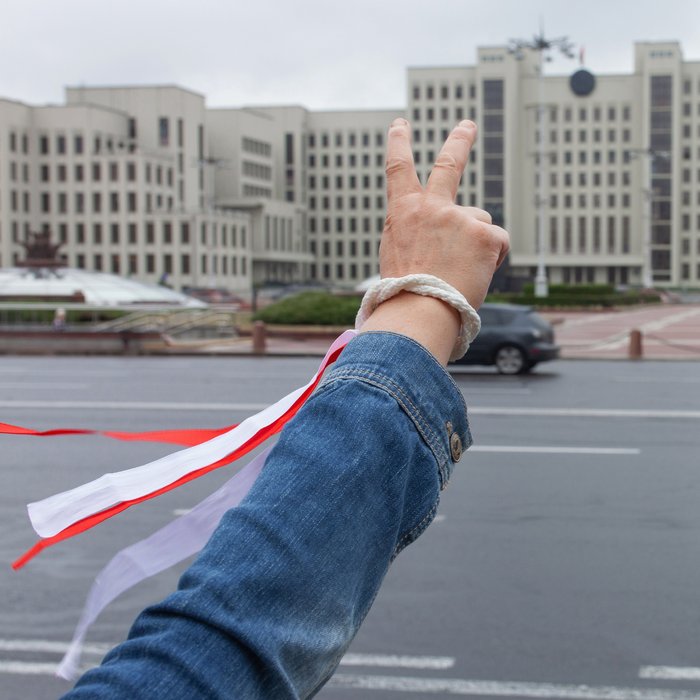
Looking back for today's struggles
In conversation with East Berlin author and theatre maker Luise Meier, Moldovan theatre makers Nicoleta Esinencu and Nora Dorogan with their collective teatru-spălătorie and director Tjaša Črnigoj, who lives in Ljubljana, Slovenia, talk about the term “post-socialism”, sources of hope and which ideas of socialist feminists of the past are still important today.
Queer-feminists in Central and Eastern Europe under the state of exception
Based on the recent women's protests in Poland, Ewa Majewska shows that feminist struggles and anti-fascist resistance are once again acutely connected today.
Symbiotic coexistence
A conversation on “Ocean Cage” with Tianzhuo Chen, Siko Setyanto, Nova Ruth, Kadapat, Yogi, Barga and Petra Poelzl.
Spy on Me #5 – Enter AI
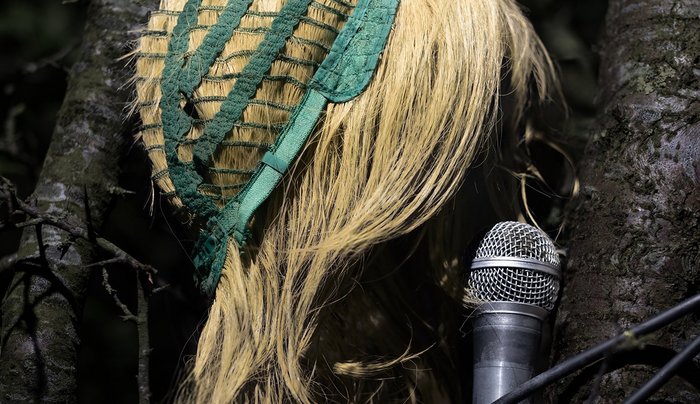
Picture: NewfrontEars, singing poster #5
Radical Data: The Gratitude Machine
The Gratitude Machine is an AI who is learning how to be thankful. You can support it by sharing thank you notes.
“Es liegt an uns, was wir damit anstellen.” (German text)
Die beiden am Festival beteiligten Künstler*innen Janne Kummer und Àlex Serrano (Agrupación Señor Serrano) sprechen mit Sarah Reimann und Annemie Vanackere über politische Fragen hinter der Nutzung und KI als Ko-Creator.
Love is a Verb – A Festival on Ways of Relating
“An unprecedented form of togetherness”
A discussion with author Sophie Lewis, political scientist Eleonora Roldán Mendívil and philosopher Eva von Redecker.
“Small gestures become political.”
Ali Chahrour will present his dance performance “Iza Hawa” as part of the festival “Love is a Verb”. A conversation with HAU curator Petra Poelzl about politics, grief and love.
“Whisperings”
A sound piece by Susan Stone and Esther Broner after a performance by Suzanne Lacy.
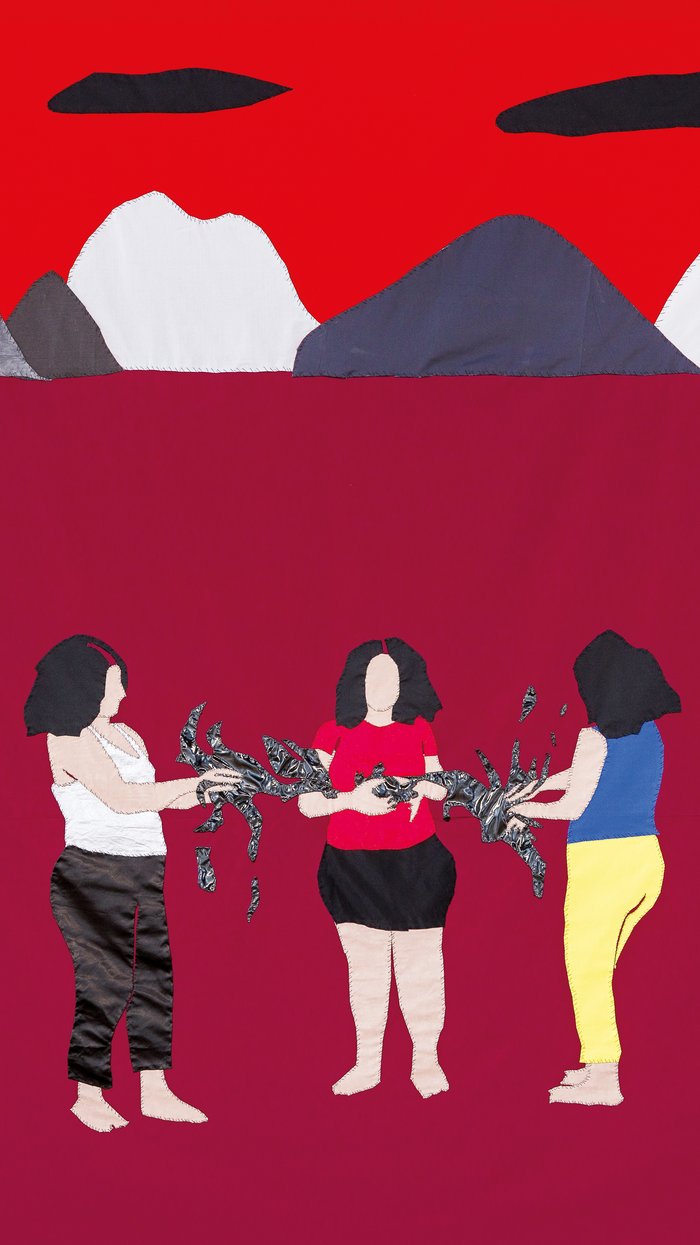
Fiddler! A Musical
In an interview with Romm Lewkowicz, Ariel Ashbel talks about the genesis of “Fiddler! A Musical”, grief and unconditional compassion.
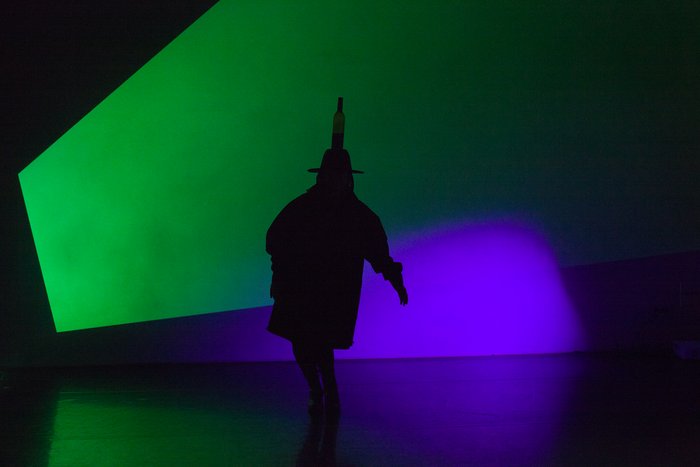
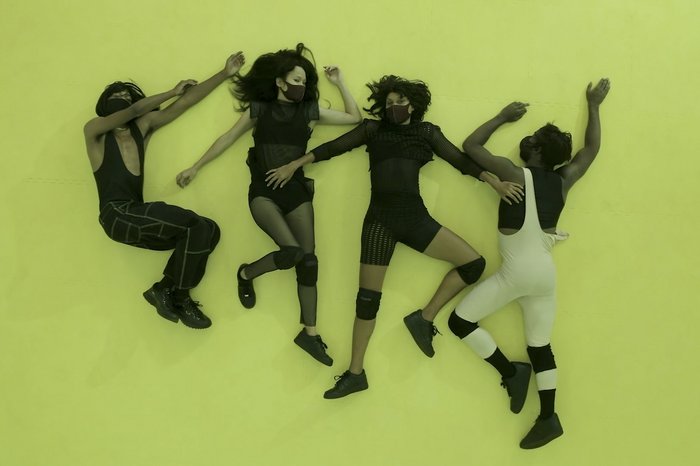
Like a sculpture
Two questions for Isabelle Schad about her new piece “The Shift of Focus”
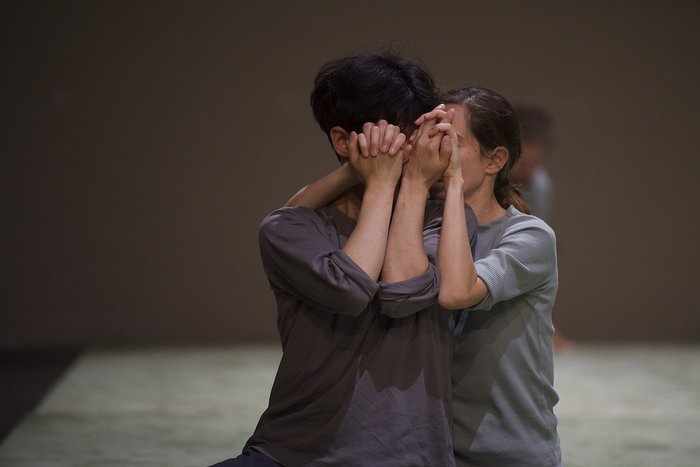
The Colloquy of the Bitches
by Lina Meruane
Authors Priya Basil and Lina Meruane met at HAU2 in late June to discuss current feminist debates and read from Meruane’s new book “Coloquio de las quiltras”. This is an excerpt from that book, translated by Andrea Rosenberg.
Festival magazine “¡PROTAGONISTAS! Resistance • Feminisms • Revolution”
The magazine for the festival “¡PROTAGONISTAS! Resistance • Feminisms • Revolution”. With essays by LASTESIS and Dilar Dirik, video contributions by artists and activists, a portrait of Carolina Bianchi, a music playlist and illustrations by Sadhna Prasad.
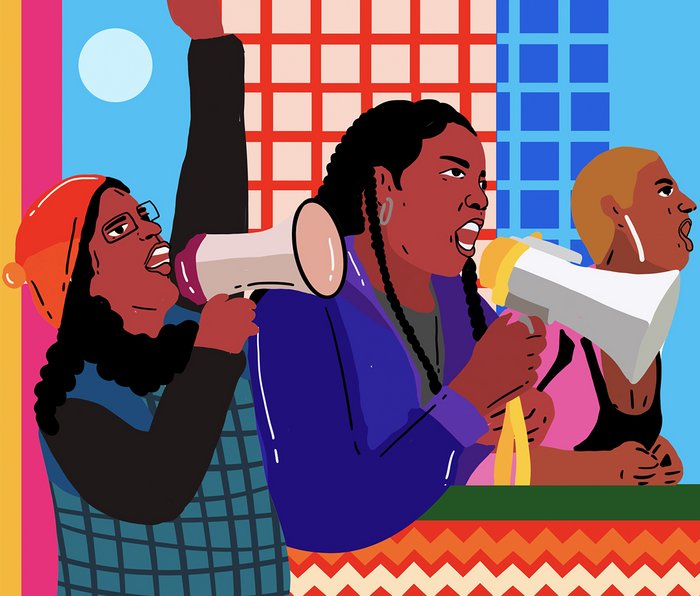

“We have invited the moss to move us.”
Five Questions for Angela Vitovec on “Mossbelly”
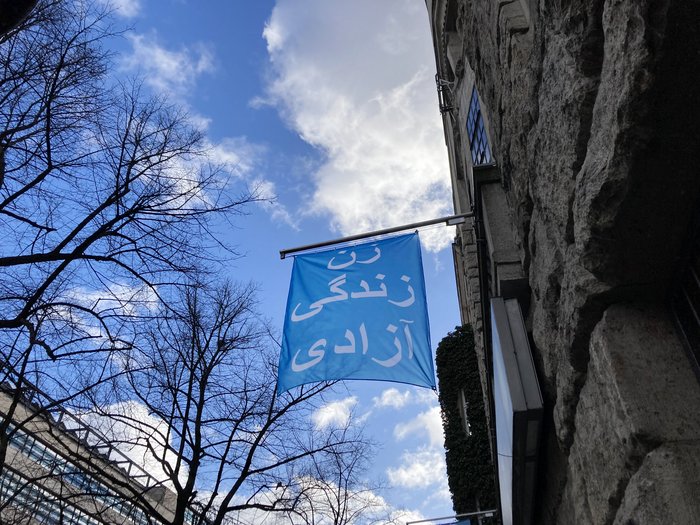
The Jina Revolution
More than four months have passed since Jina Mahsa Amini's death, and protests in Iran against the regime continue to this day, as do reports of executions of protesters. What does this revolution mean for Iranians in the German diaspora? What tools of solidarity do they use, what visions do they dare to have for the future of Iran? And what role does art play as a means of resistance? Azadeh Sharifi talks about this with Azadeh Ganjeh and members of the Woman* Life Freedom Collective Ozi Ozar and Anahita Safarnejad.

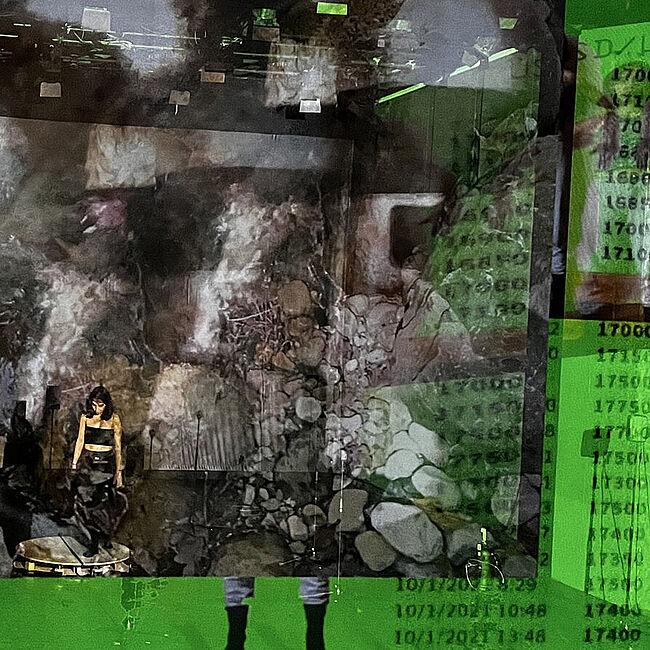
Transforming gestures into dance
An interview with Nedjma Hadj Benchelabi and Shaymaa Shoukry
The second edition of “Un|controlled Gestures” presents works of young choreographers and dancers from Egypt, Lebanon, Morocco, Tunisia, and Palestinian Autonomous Territories. An interview with the two curators.
Towards a Non-Binary Theatre
by Caspar Weimann, translated by Josephinex Ashley Hansis
"It is time for the theatre to creatively address the outdated assumption of a separation between digital and analogue." (HAU4 Text #3, November 2022)
Spy on Me #4 – Online Magazine
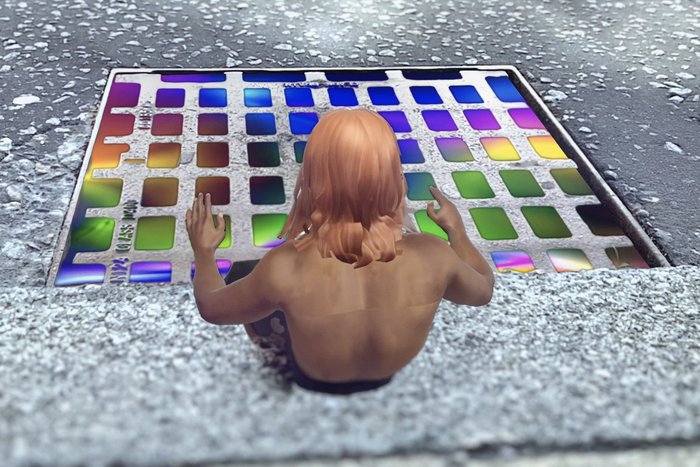
About hybrid theatre spaces, digital body needs, artificial stupidity, new forms of social interaction and other topics of the festival “Spy on Me #4 – New Companions”. With essays by James Bridle and Christiane Kühl, contributions by Tactical Tech and dgtl fmnsm, interviews with onlinetheater.live and Nina Tecklenburg (Interrobang) & Nadia Ross (STO Union), Marion Siéfert in portrait and artists’ voices on the question “What's your favorite ‘New Companion’?”.
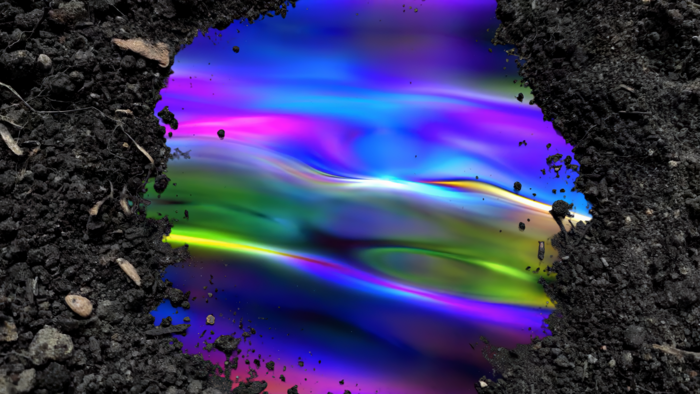
New Noises for New Feelings
By NewfrontEars
The artist duo NewfrontEars wrote this text on behalf of HAU Hebbel am Ufer in February 2022.
Enjoy Killjoy
Nicoleta Esinencu
In her new work with HAU Hebbel am Ufer, author and director Nicoleta Esinencu and her protagonists explore how the progress of the capitalist system creates ever new forms of exploitation and colonisation. An excerpt from “Symphony of Progress”, which will premiere at HAU on 13 January 2022.
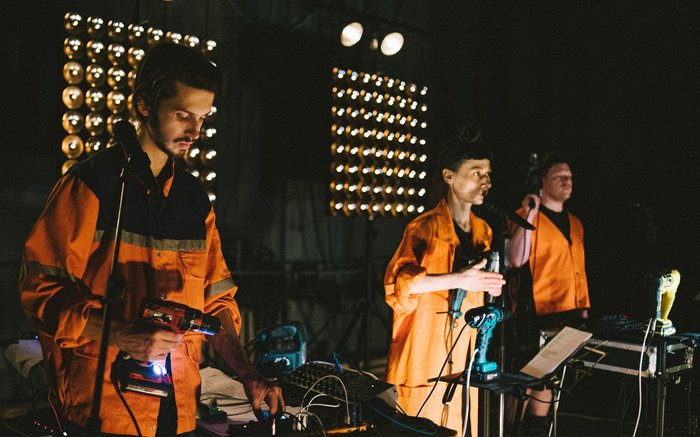
The Fifth Wall
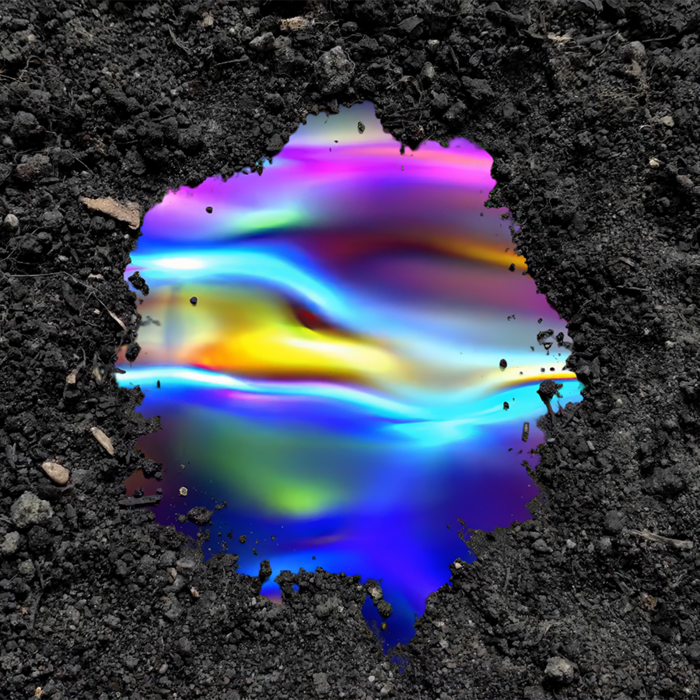
By Hito Steyerl
The artist Hito Steyerl wrote this text on behalf of HAU Hebbel am Ufer on the occasion of the relaunch of the digital stage in November 2021.
Bildet Nischen! Rückkopplungen aus dem Zodiak Free Arts Lab
“We didn't document things – we simply did them”
What was happening at the Zodiak Free Arts Lab? How did the different scenes inspire each other? What influence did the Zodiak have on the generations to follow? A conversation about experiments, freedom and solidarity – as well as the vital underground with painter Elke Lixfeld, who co-founded the Zodiak; musician Alfred 23 Harth, who took a saw to the Zodiak's stage in 1968; musician Alexander Hacke, who helped shape post-punk in Berlin a decade later; and musician Andrea Neumann, who saw Berlin become the capital of improvised music in the nineties.
Nameless Experiments
The Zodiak Free Arts Lab was a space for experimentation with open results. Its participants strove to transcend traditions and create conditions for the unknown. In this essay, Patrick Hohlweck situates the Zodiak temporally, spatially, as well as musically, suggesting that it should be understood less as a venue of a specifically Berlin or German counterculture, and more as part of a transnational network of cross-genre projects.
The Glowing Room
Every avant-garde needs the right spatial conditions in order to be able to thrive. West Berlin in the sixties offered a variety of opportunities for artistic experimentation thanks to its many independent and non-commercial locations, including the Zodiak Free Arts Lab. In this essay, Hendrik Otremba laments the disappearance of such spaces today, calling for more sites of freedom and openness.
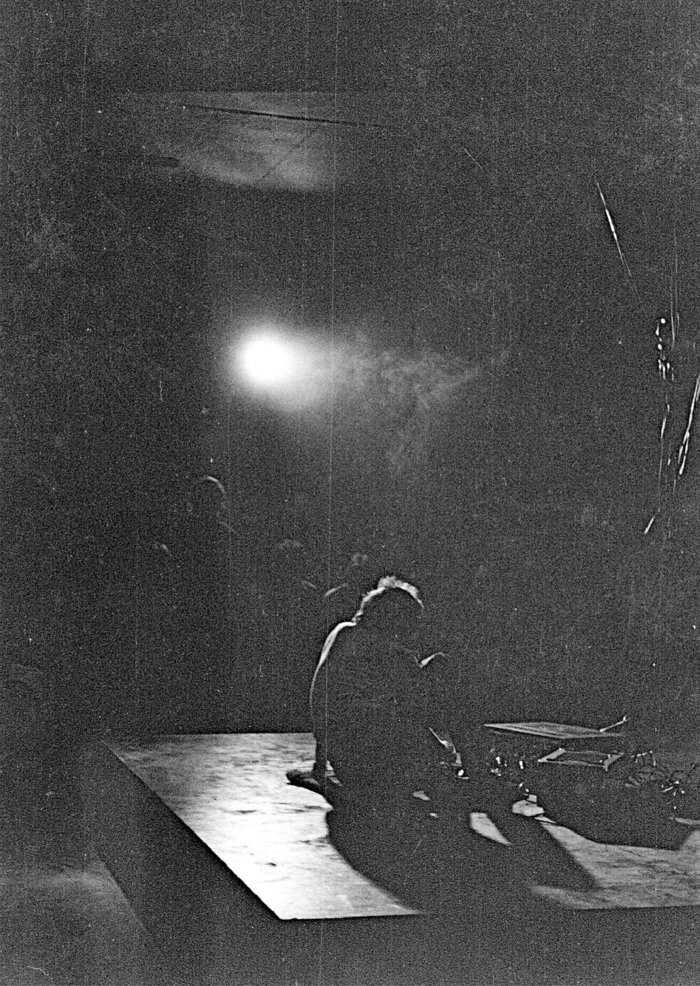
Berlin Bleibt #3 – Werkstatt Mehringplatz
How does a joint plan succeed?
Editorial by Stella Konstantinou, Volkan Türeli (HAU to connect) and Nadine Vollmer (freelance dramaturge) from the “Berlin bleibt! #3 – Werkstatt Mehringplatz” publication.
“What's actually going on here?”
On 5 May 2021, HAU invited some of the players to a round table to talk about the situation at Mehringplatz for the publication “Berlin bleibt! #3 – Werkstatt Mehringplatz”. A talk with Hendrikje Herzberg, Gülcan Yapici, Mareike Stanze, Erik Krüger and Ulrike Hamann.
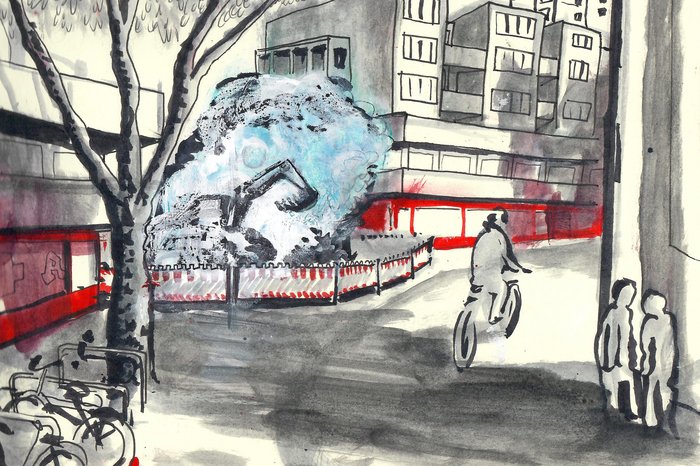
What is the status of the immigrant community within local city politics?
A text from the “Berlin bleibt! #3 – Werkstatt Mehringplatz” publication by Hülya K. Kilic, shop owner and activist.
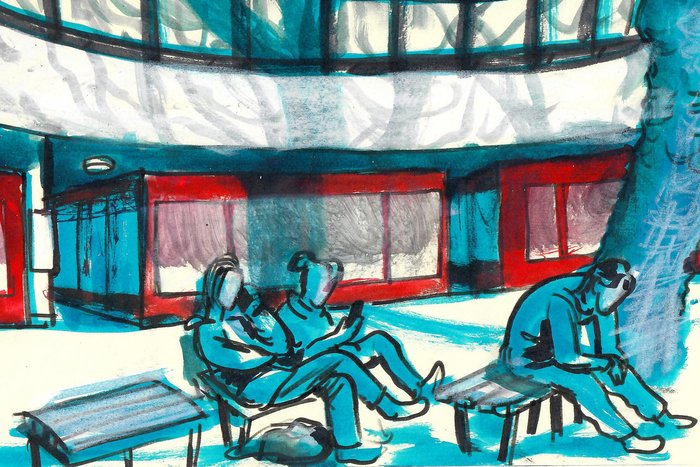
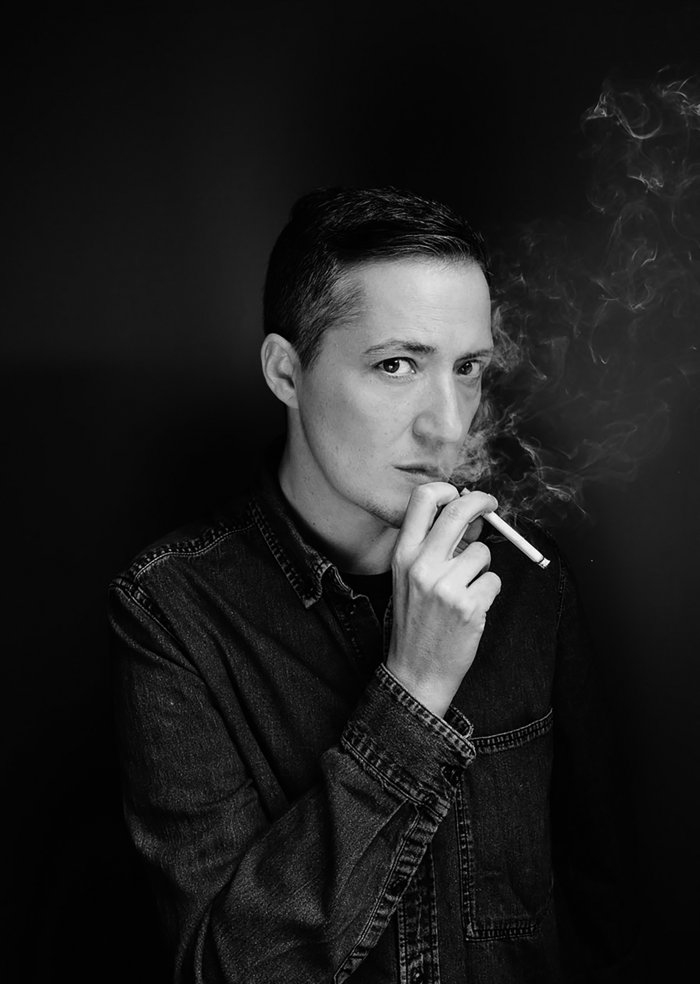
Wer kann übersetzen? Eine politische Frage (German text)
Paul B. Preciado
Bei der Amtseinführung des US-Präsidenten Joe Biden im Januar 2021 trug Amanda Gorman ein Gedicht vor, das bald in zahlreiche Sprachen übersetzt werden sollte. Besonders die Kontroverse um die Übersetzung von “The Hill We Climb” ins Niederländische durch Marieke Lucas Rijneveld hat im deutschsprachigen Raum zu Diskussionen geführt. Daraufhin beauftragte der Verlag Hoffmann & Campe ein diverses Team von drei Frauen mit der deutschen Übersetzung. Fragen um race, sex und gender folgen keiner essentialistischen Gleichung, bei der die Äquivalenz der Identität zwischen Autor:in und Übersetzer:in die Qualität einer Übersetzung garantieren könne, schreibt Paul B. Preciado in seinem Essay, in dem er aus französischer Perspektive auf die Debatte blickt. Dennoch birgt die Diskussion die Chance, die Kulturindustrie endlich für die Vielfalt zu öffnen.
Wir, das Ungarn des Westens (German text)
Paul B. Preciado
Ausgehend von der Verschärfung des Abtreibungsverbots in Polen sowie Ungarns transfeindlichem Entwurf zur Verfassungsänderung beobachtet Paul Preciado, wie innerhalb europäischer demokratischer Institutionen zunehmend neofaschistische Laboratorien entstehen. Charakteristisch hierfür ist die Figur der Leugnung: ob die Leugnung der Existenz des Klimawandels sowie die von den gleichen Akteur:innen betriebenen Leugnung der Existenz von Gender oder auch der eigenen Kolonialgeschichte. Er plädiert daher für einen Aktivismus, der die Ziele der politischen Ökologie gleichzeitig zu den Projekten der Entpatriachalisierung und der institutionellen und sozialen Dekolonisierung verfolgt.
Die Revolutionshypothese (German text)
Paul B. Preciado
“Und was, wenn sich jetzt, inmitten dieser planetarischen Depression, die größte Revolution der Geschichte ereignet?” Ausgehend von dieser Frage formuliert Paul B. Preciado eine “Revolutionshypothese” – als somatopolitische Emanzipationsübung, die als Gegen-Fiktion der aktuell geltenden Epistemologien neue Vorstellungen davon entwirft, was wir aus der Mutation des Virus lernen wollen: Die Frage ist nicht mehr, wer wir sind, sondern was wir werden.
Alles muss sich ändern (German text)
Paul B. Preciado
Nichts wird mehr sein wie vor der Corona-Pandemie, prophezeit Paul B. Preciado und kritisiert damit die Diskurse derer, die sich nach der Rückkehr zu einem “Vorher” sehnen. Durch eine Aufzählung historischer Ereignisse macht er klar, dass ein Zurück zu einem vermeintlich intakten Vorher aus der Sicht der Subalternen absurd erscheint, da für sie jeder historische Moment immer schon durch den Kampf gegen Auslöschung geprägt war. So fordert er, dass die Zeit der nekropolitischen, kolonialen und patriarchalen Politiken aufbricht.
Festival Magazine “Spy on Me #3 – New Communities”
With contributions by Jan Distelmeyer, Anna Fries, Ulla Heinrich (dgtl fmnsm), Christiane Kühl (doublelucky productions), Legacy Russell, Roman Senkl (minus.eins), Caspar Weimann (onlinetheater.live) and Lena Ziyal
Festival trailer: Julia Elger
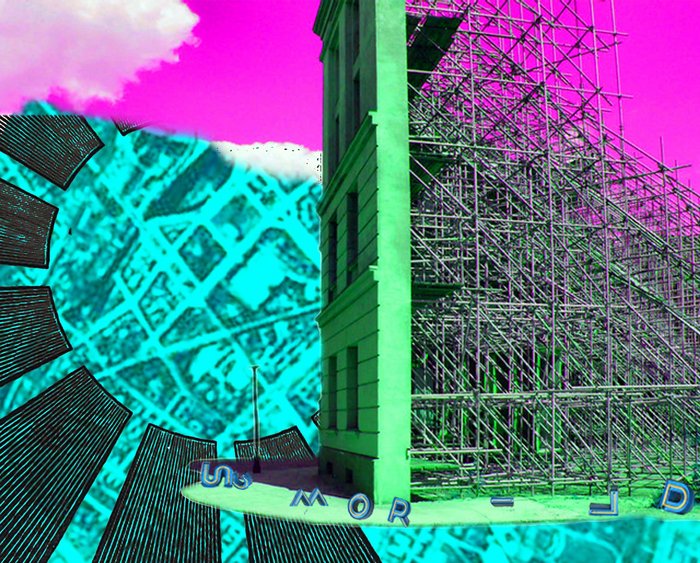
In search of radical mutations
In this essay, author and historian Edna Bonhomme takes a look back at “Radical Mutation: On the Ruins of Rising Suns”. The festival, curated by Nathalie Anguezomo Mba Bikoro, Saskia Köbschall and Tmnit Zere for HAU Hebbel am Ufer, took place from the 23 September to the 4 October at HAU1 and online at HAU4
Fabifa’s Tape Art for HAU
As part of the programme “‘Я выхожу!’ (I’m going out) – Berlin meets Minsk” on the current events in Belarus, Fabifa created this tape art picture for HAU Hebbel am Ufer. The artist from Minsk lives in Berlin and presents her tape art performances at festivals and exhibitions throughout Europe. In Berlin, her works can be seen repeatedly on walls all over the city.
By viewing the video you agree that your data will be transmitted to YouTube and that you have read the privacy policy.
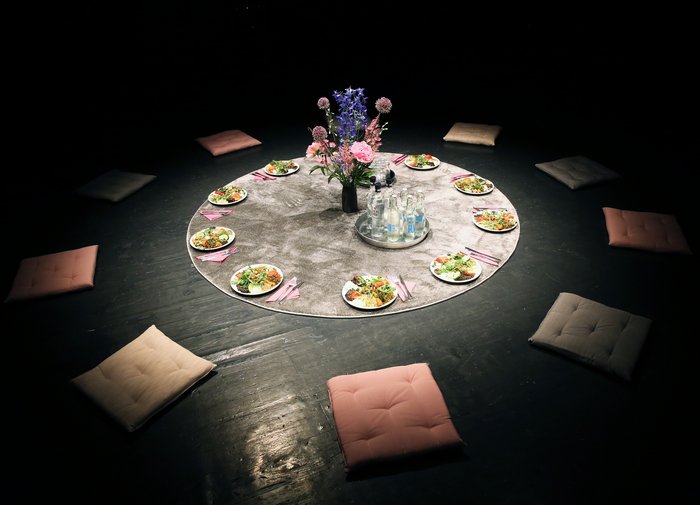
Unacknowledged Loss II
A Project on Mourning and Loss by Barbara Raes & HAU Hebbel am Ufer
During the “Unacknowledged Loss II”, several materials like photos, texts and films were generated that we share now with the public as part of the programme of #HAUonline.
Burning Futures #5: Beyond The End Of The World?
In the fifth podcast edition of the series “Burning Futures”, art theorist T.J. Demos engages in a discussion with Anjalika Sagar and Kodwo Eshun (The Otolith Group) about the conceptual background of their recent film “INFINITY Minus Infinity” in the face of the Corona Crisis and the Black Lives Matter movement and why racial genocide and ecocide are both at the origins of the “Anthropocene”.
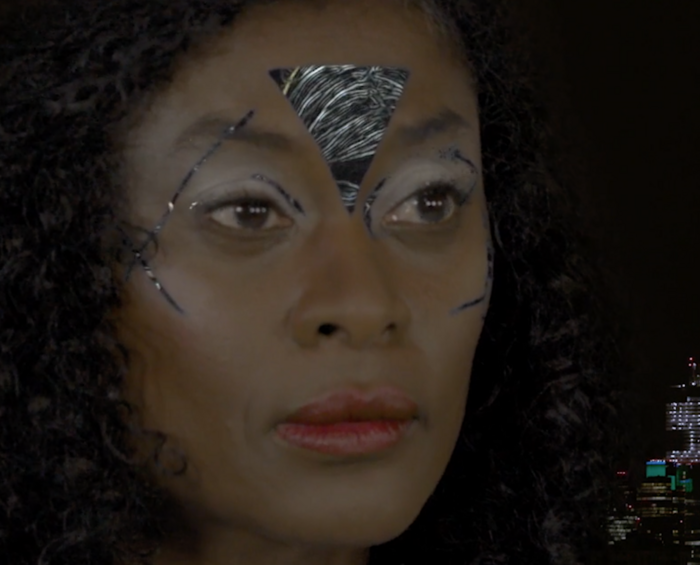
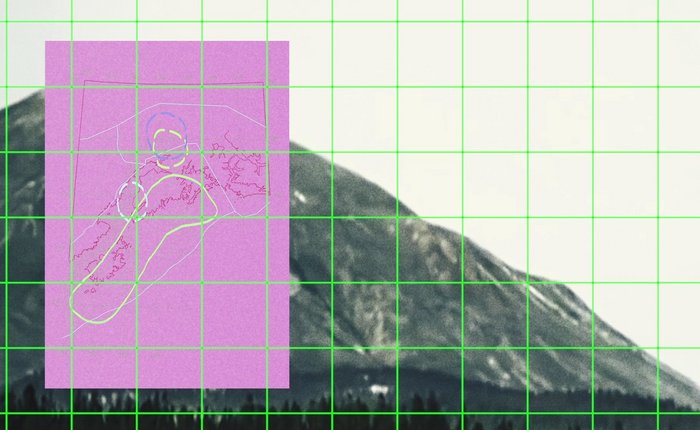
The End As Interlude
Episode 3: Interlude / By Jota Mombaça
In the third episode, we accompany The Community member Khalil, who is moving further and further away from the usual earthly existence in space and time. His presence is a dance with indeterminacy.
“Collective Jumps” / “Pieces and Elements” / “Reflection” (German Text)
Zwischen 2014 und 2019 führte Isabelle Schad eine vielschichtige Bewegungsrecherche über kollektive Körper durch, die sich in den drei Werken “Collective Jumps”, “Pieces and Elements” und “Reflection” manifestierte. Lesen Sie hier Interviews mit der Choreografin – gesammelt und ediert von Elena Basteri.
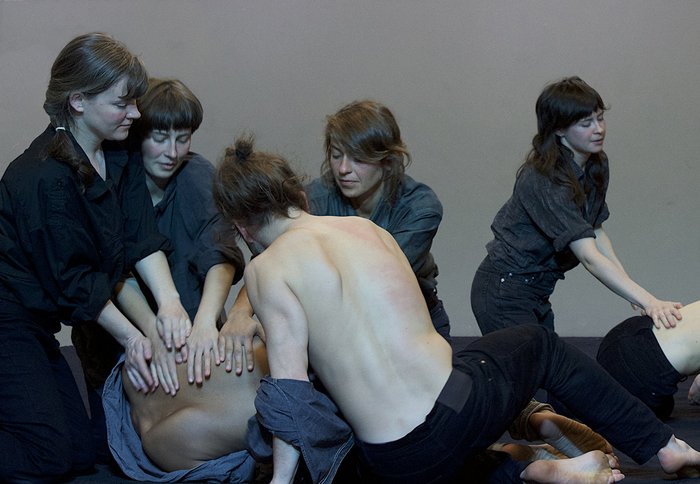
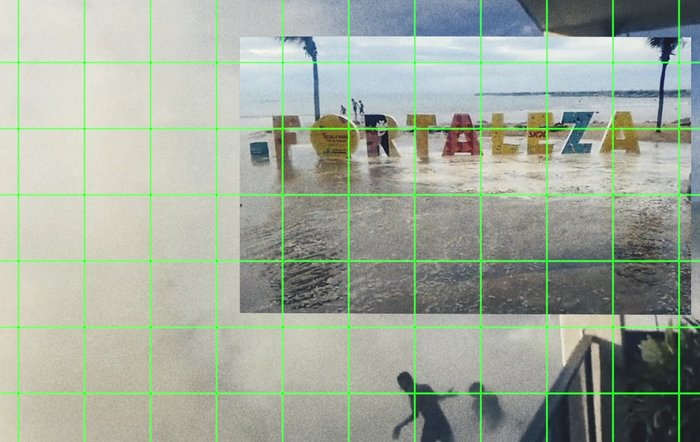
The End As Interlude
Episode 2: Energy Bending / By Jota Mombaça
In the second episode, protagonist Elsi tells of her journey through a dystopian Europe, queer solidarity, and a reunion that turns out differently as planned.
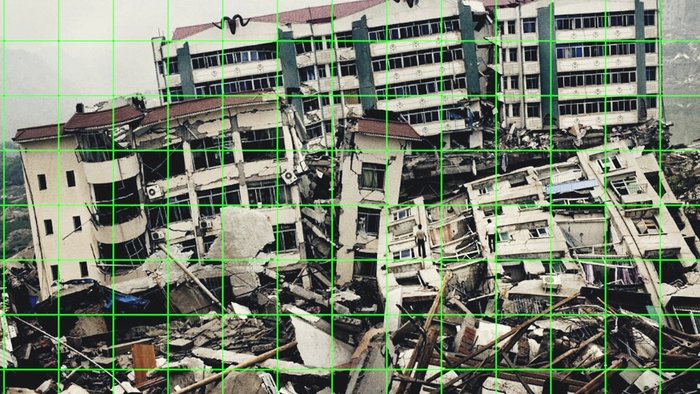
The End As Interlude
Episode 1: The Silent Earthquake / By Jota Mombaça
Based on world events in times of the Corona pandemic, Mombaça conceives a diffuse future, one in which borders, escape and freedom of thought play a central role.
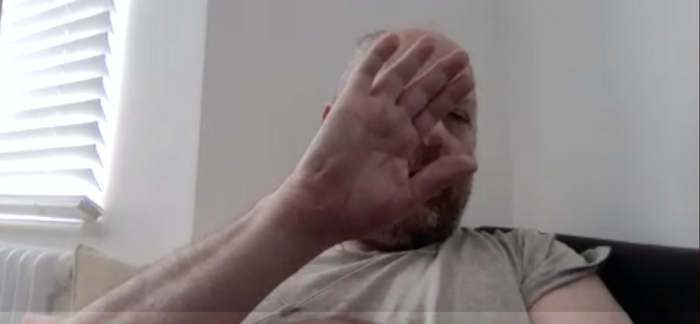
Digitale Logen, leere Stühle und chaotische Räume (German Text)
Über Corona und Theater
In seinem Essay untersucht der Theoretiker, Dramaturg und Autor Georg Döcker den Einfluss der Coronakrise auf das Theater und beschreibt sozio-politische und machttechnologische Verschiebungen hin zur digitalen Theaterloge.
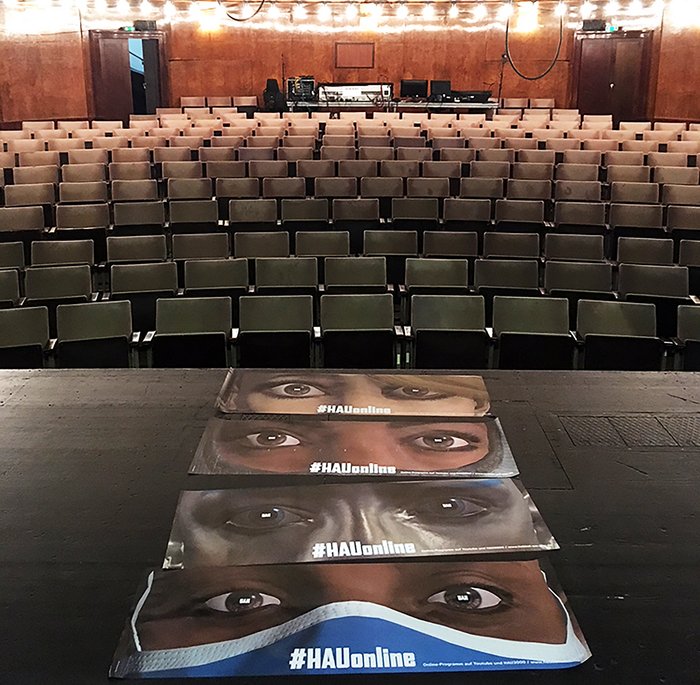
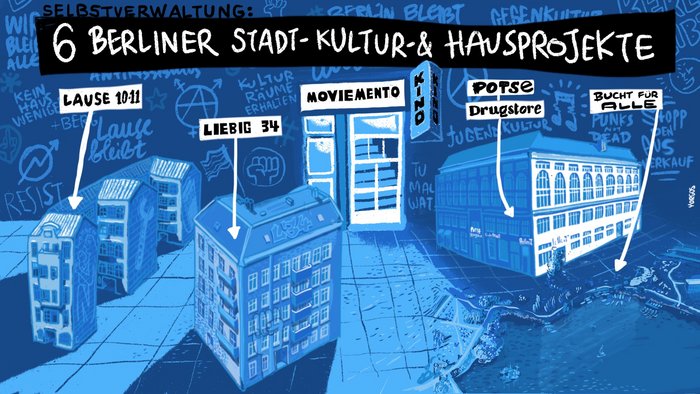
Berlin bleibt! #2: #KeinHausweniger
Werkstatt für die Selbstverwaltung von Berliner Haus- und Kulturprojekten
Spiralling rents don’t just affect residential buildings. Above all, the very existence of numerous alternative city, cultural and house projects is under threat. Here you can read the current demands by key initiatives from the campaign #KeinHausweniger.
Vom Virus lernen (German Text)
Paul B. Preciado
Mitte März erkrankte Paul B. Preciado am Coronavirus. Der Vordenker auf den Gebieten Queer Studies und Philosophie des Körpers schrieb kurz darauf einen Text über das politische Seuchenmanagement von Covid-19. Er diskutiert darin den Begriff der Immunität in seiner politischen und medizinischen Dimension und zeigt auf, wie die über Jahre entwickelten Grenzpolitiken des Ausschlusses nun auf der Ebene des individuellen Körpers zum Einsatz kommen ...
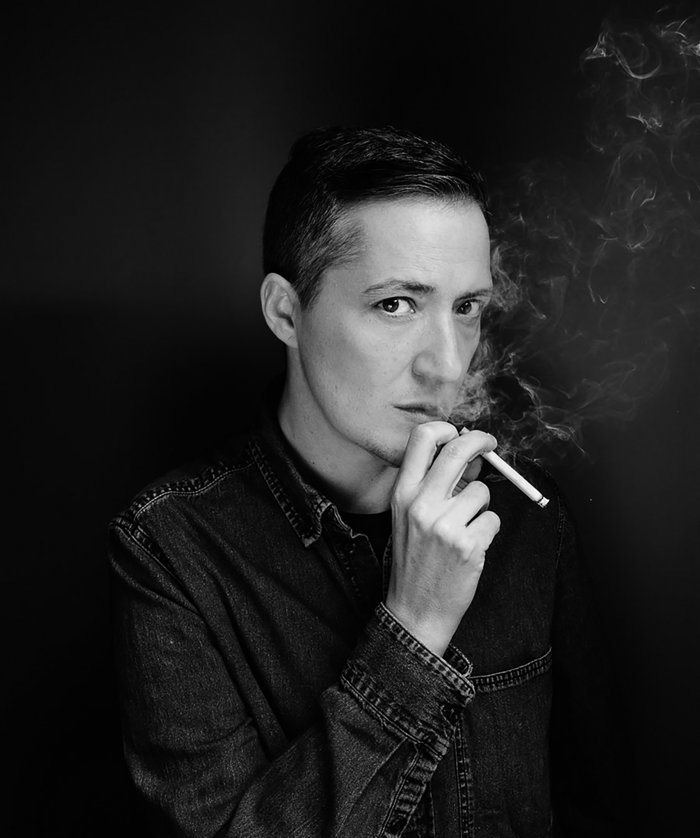
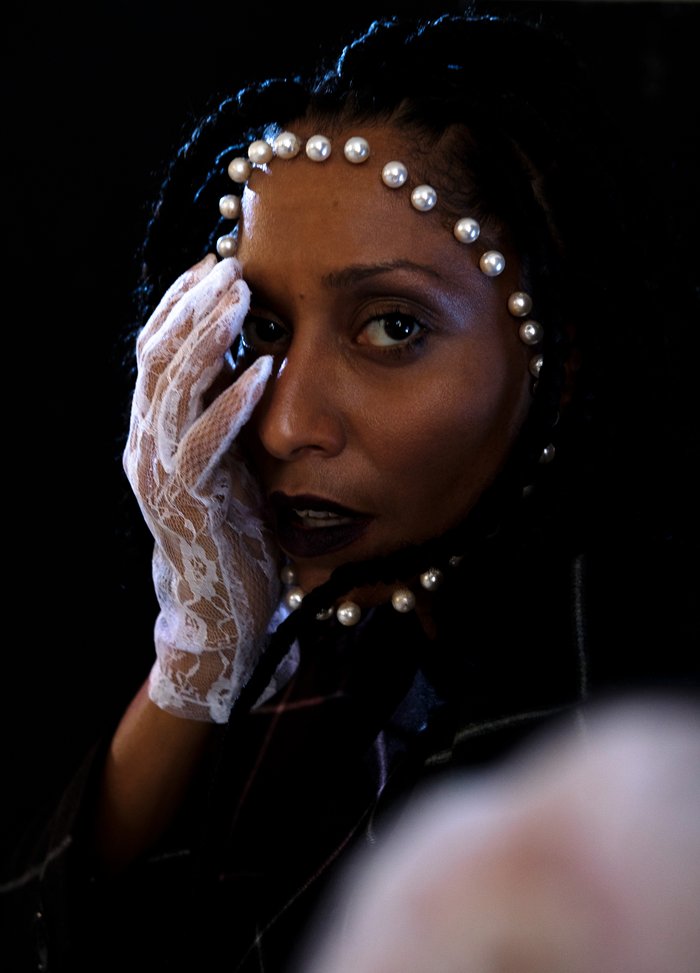
Between Hope and Hopelessness
Between March 15 and 18, HAU originally planned to show “A Melancholic Melody / A Will To An End – A Series of Works by Ligia Lewis”, including Lewis’ recent performance trilogy – “Sorrow Swag,” performed in a saturated blue, “minor matter,” a poetic work illuminated in red, and “Water Will (in Melody),” a gothic tale set in black and white. Unfortunately, this had to be cancelled in order to prevent a rapid spread of the coronavirus. Although it’s not a replacement of the live performance, you can read here an interview with Lewis, first published in Bomb Magazine.
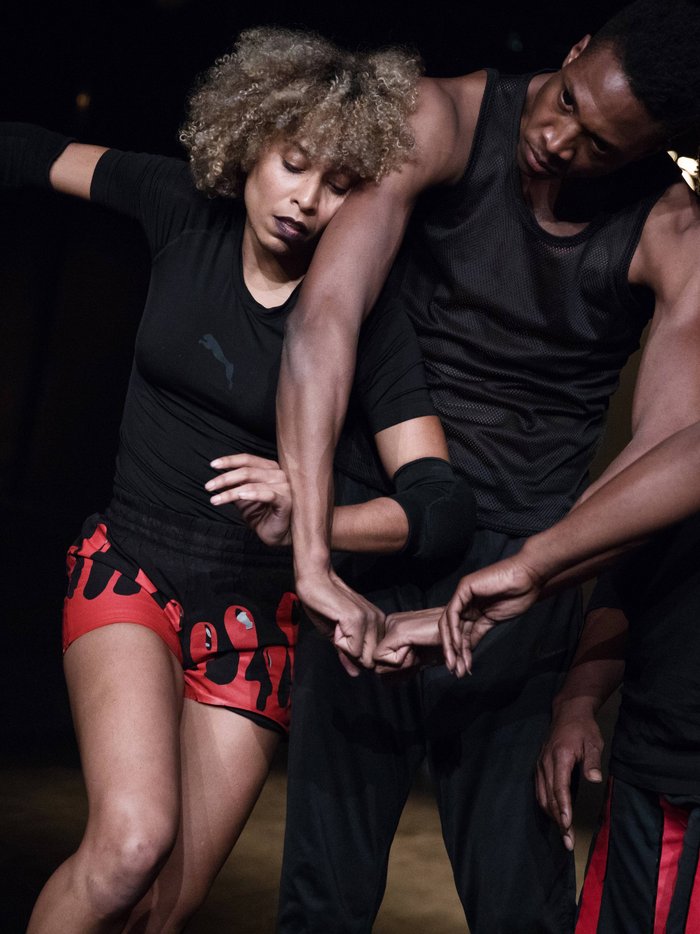
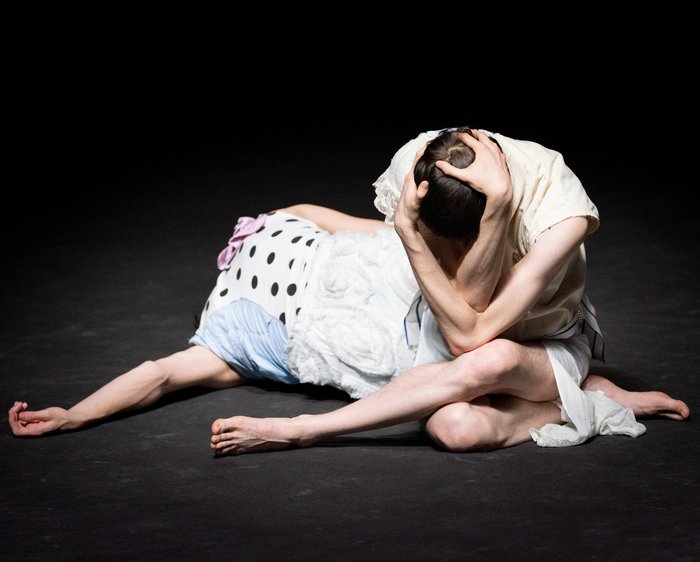
Reflections on the past
Eszter Salamon in conversation
“HETEROCHRONY / Palermo 1599–1920” – a HAU co-production – imagines a continuum between life and death, the cohabitation of the living and the dead.
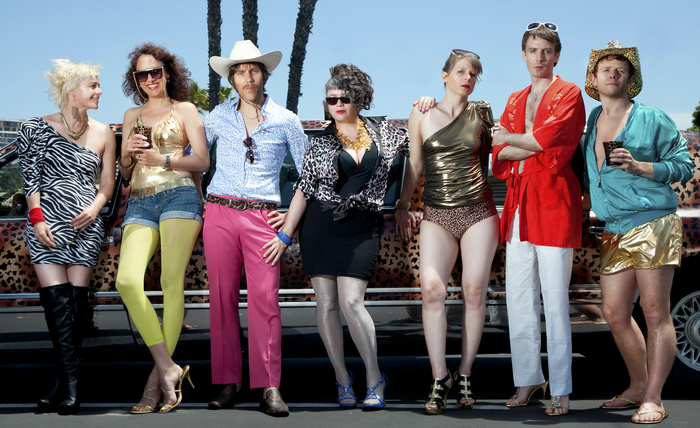
Gob Squad – Be Part of Something Bigger (German Text)
Im neuen Buch “Gob Squad – What are you looking at?” schreibt Aenne Quiñones über die Anfänge des deutsch-britischen Kollektivs.
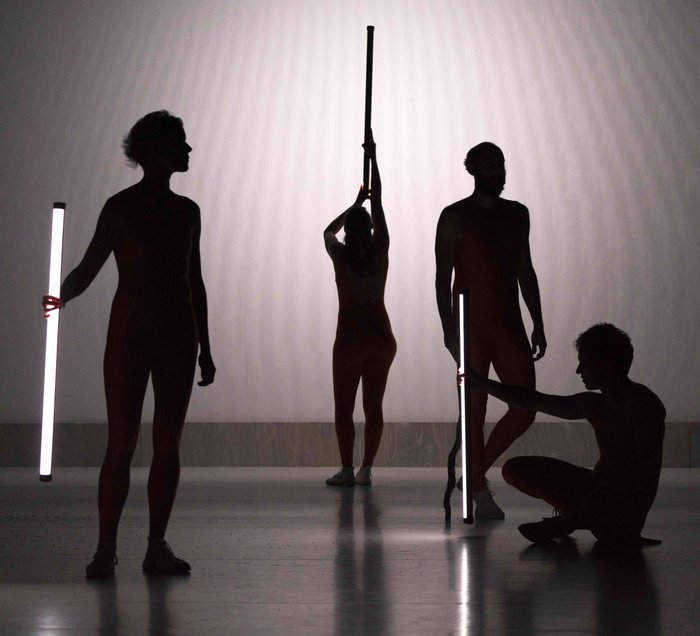
Choreographies for non-humans – A conversation with Mette Ingvartsen
By Katleen Van Langendonck & Eva Decaesstecker
The German premiere of “Moving in Concert” by Mette Ingvartsen would have taken place on March 27 during the festival “Spy on Me #2 – Artistic Manoeuvres for the Digital Present”. But due to the coronavirus suspending of the physical programme, the dance piece about a universe where humans, technologies and natural material coexist couldn’t take place at HAU2. Read instead an interview with the choreographer, not only about her latest production.
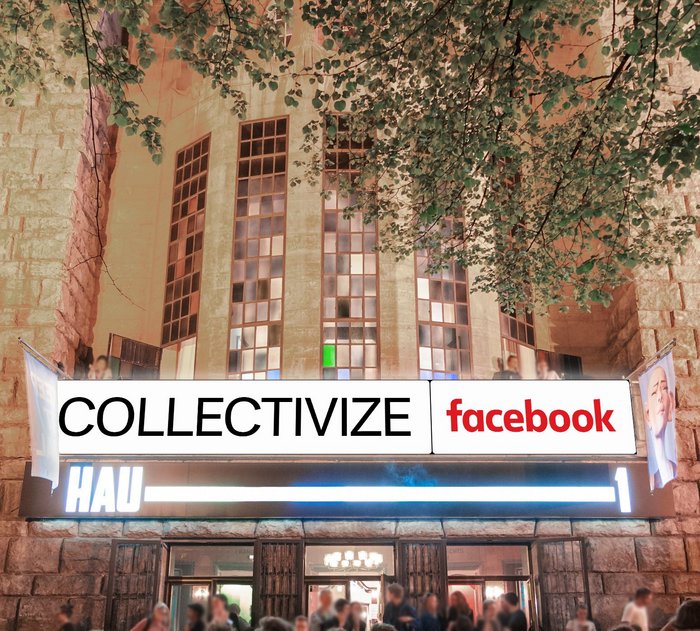
An Introduction to “Collectivize Facebook”
By Jonas Staal
“Collectivize Facebook” is a lawsuit aimed to turn Facebook into public property, initiated by artist Jonas Staal and lawyer Jan Fermon. Read here Staal’s introduction to the project.
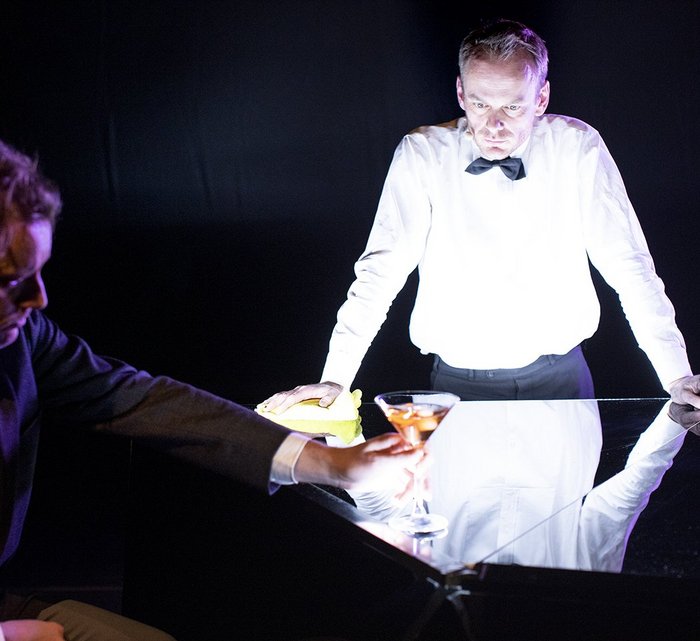
When Cthulhu calls
A text by Thomas Ryckewaert
If everything would have happened as planned, the German premiere of “Move 37” would have taken place during the festival “Spy on Me #2 – Artistic Manoeuvres for the Digital Present”. This would have been the first cooperation between HAU Hebbel am Ufer and the artist and biologist from Antwerp Thomas Ryckewaert. But due to the coronavirus suspending of the physical programme, his theatre performance about the computer programme AlphaGo and phenomena beyond human imagination couldn’t take place at HAU2. Instead, Ryckewaert now shares an essay which was the blueprint for the performance. Here he draws a connection between H.P. Lovecraft‘s creatures and the cool horror of the intelligent machine.
By viewing the video you agree that your data will be transmitted to YouTube and that you have read the privacy policy.
Introduction “Spy on Me #2. Artistic Manoeuvres for the Digital Present – Online Programme”
by Annemie Vanackere, Artistic & Managing Director of HAU Hebbel am Ufer, 19.3.2020
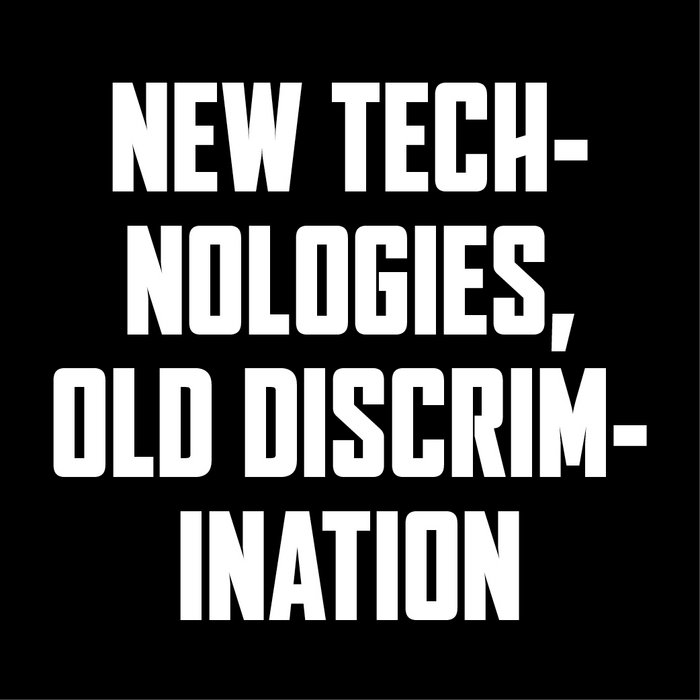
The utopia of cyber freedom is showing its darker side more and more clearly. Because the data that everyone generates every day is used in very different ways – depending, for example, on where you live and how much money you have at your disposal.
An Essay by Frederike Kaltheuner and Nele Obermüller
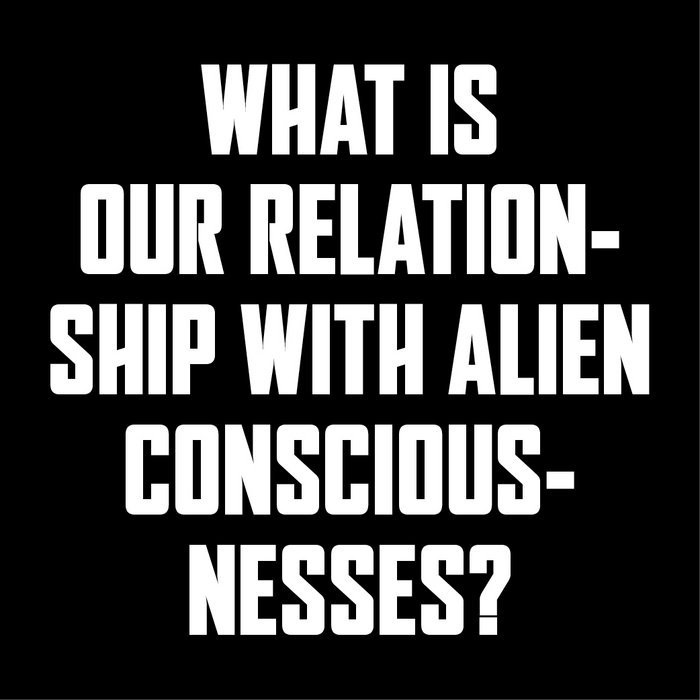
As we build rivals to human intelligence, James Bridle looks at our relationship with the planet’s other alien consciousnesses.
Read the text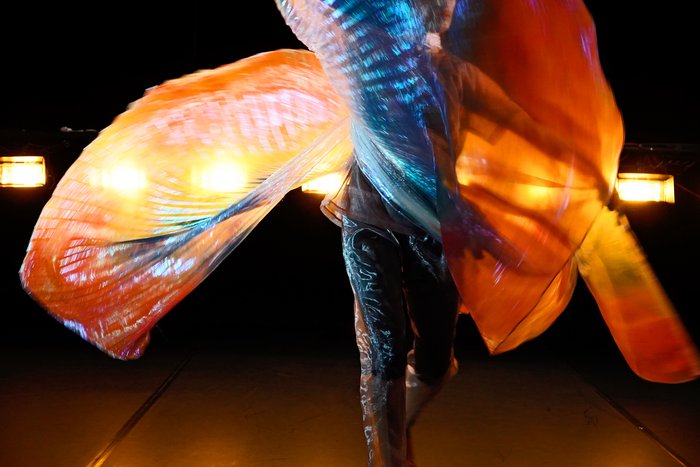
“I feel there is a possibility to reverse this history of colonizing the female body and make it speak it out from one’s own voice and experience”
Tümay Kılınçel in conversation with Nora Amin about “Dansöz”
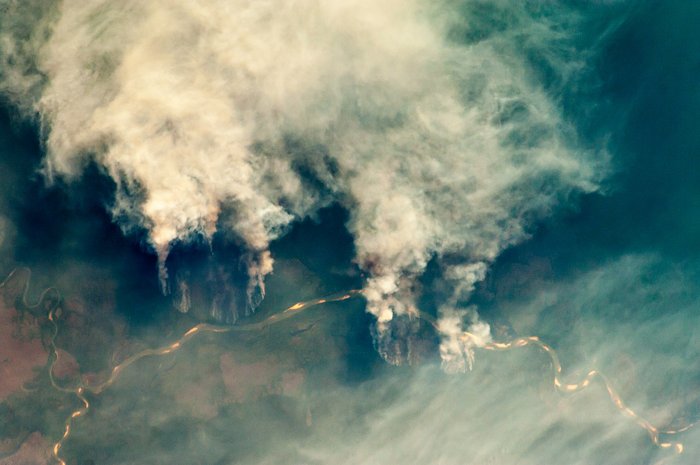
Podcast “Burning Futures: On Ecologies of Existence”
#2 Fossil Economies, Degrowth Ecologie
Welcome to the podcast of the HAU discussion series“Burning Futures: On Ecologies of Existence” – the series on ecological questions and their intersections with political, economical and cultural dimensions.
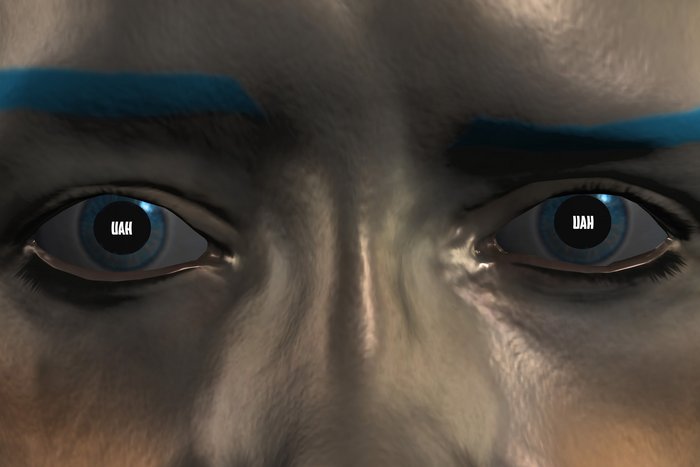
“Manifestos for Queer Futures” Video Documentation
As part of the festival “The Present Is Not Enough – Performing Queer Histories and Futures”, HAU initiated an open call for artists based in Berlin, who were invited to submit proposals for their Manifestos for Queer Futures. 270 artists replied to the open call, and 26 were selected and will be presented on the stage of HAU2. Now the full video documentation is available online – in the chronological order of the performances.

Podcast “Burning Futures: On Ecologies of Existence. #1 Facing Extinction!”
Welcome to the first edition of “Burning Futures: On Ecologies of Existence” – the podcast. The new discussion series at HAU Hebbel am Ufer looks at the escalating and indeed apocalyptic discourses of the coming end against the background of a growing ecological crisis and asks about opportunities for action. It is initiated and conceived by HAU´s curator for Discourse, Margarita Tsomou, and curated in cooperation with the theorist and dramaturg Maximillian Haas ...
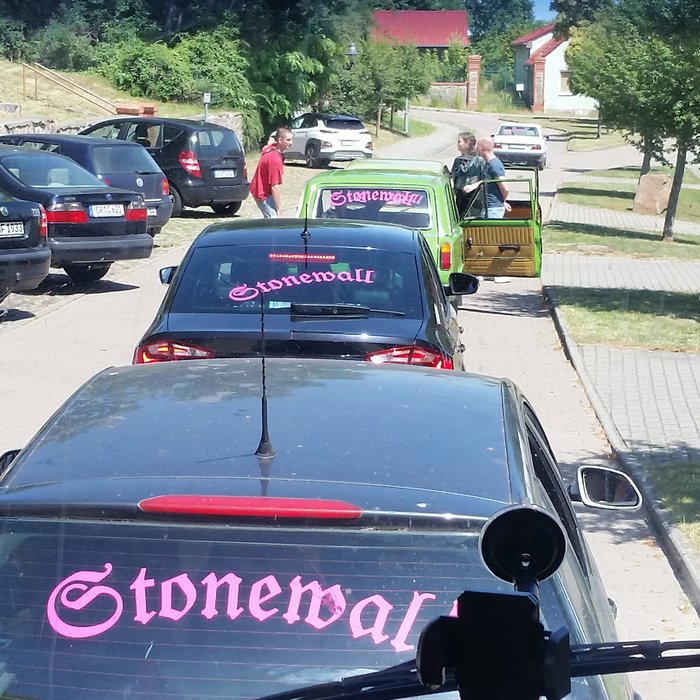
Stonewall Uckermark Radio Show – 10 Audio Pieces
On the 50th anniversary of the Stonewall Riots Tucké Royale, Johannes Maria Schmit and Schuldenberg Films set out through the Uckermark in a motorcade packed with a queer hologram family of 60 participants. In the northeastern periphery, they looked back on and celebrated the 50th anniversary of the Stonewall Riots at a safe distance from the big city of Berlin. The audio pieces you can listen to here were played in the participants' car radios. The tracks were positioned in a dramaturgy that mixed them with the landscape flying by in between the stops.
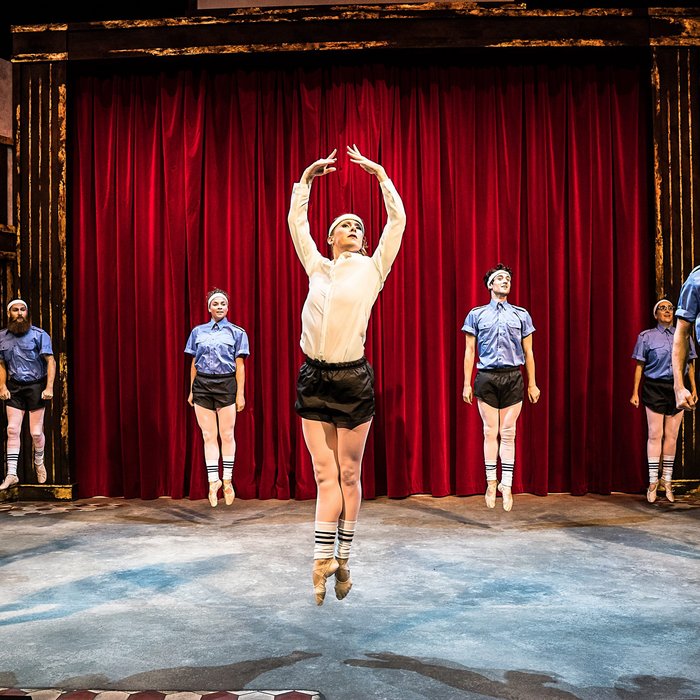
Made Up of Time and Enegry – Notes on choreographic aspects in the work of Nature Theater of Oklahoma by Pieter T’Jonck
In recent years Nature Theater of Oklahoma’s work has taken many different directions but recently they went back to choreography as their main medium. With “No President. A Story Ballet of Enlightenment in two Immoral Acts” they return to HAU.
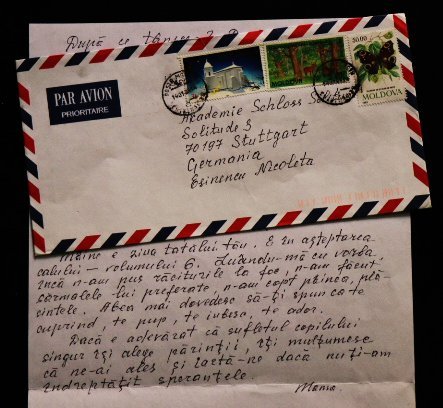
“First, you rebel, then you cry. Then you smoke a cigarette”
Excerpts from the letters of Nicoleta Esinencu’s mother
After the fall of the Soviet Union, family structures in the Republic of Moldova were faced with great economic challenges and at the same time were restyled into a traditional Christian asset. Nicoleta Esinencu links these circumstances with the experience of losing her parents, examining the term family in the 21st century. This is an excerpt from her mother’s letters to her.
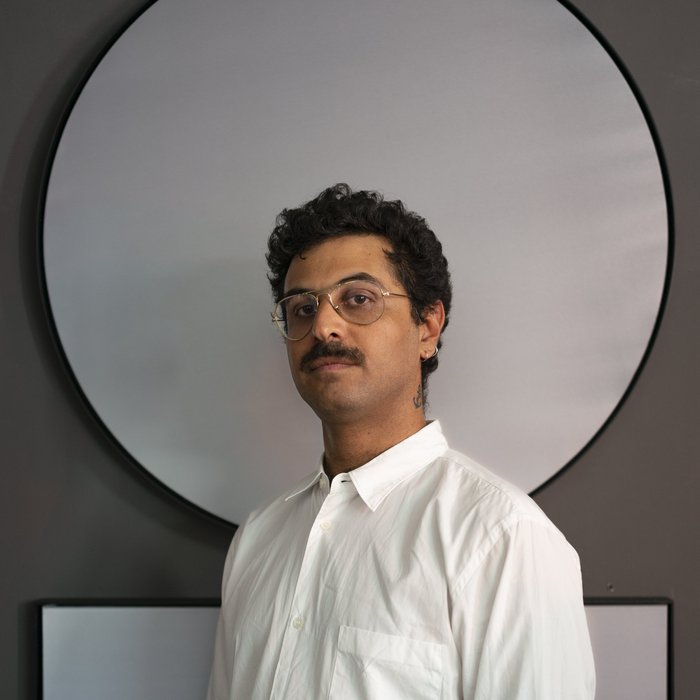
"An Argument against Aboutness"
Ariel Efraim Ashbel talks about his new work “no apocalypse not now”, his poetics and his role as director.
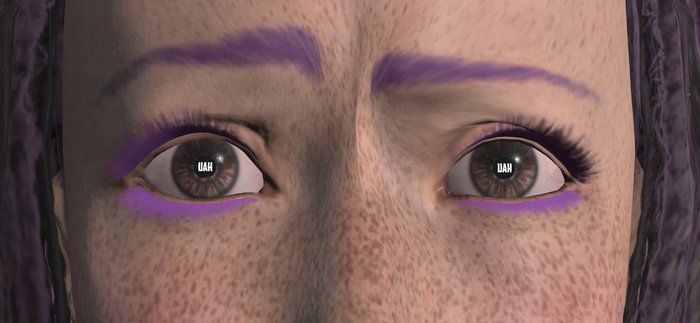
KEEP IT REAL
The writer Luise Meier was commissioned by HAU Hebbel am Ufer to go along with their current film and poster campaign “KEEP IT REAL”.
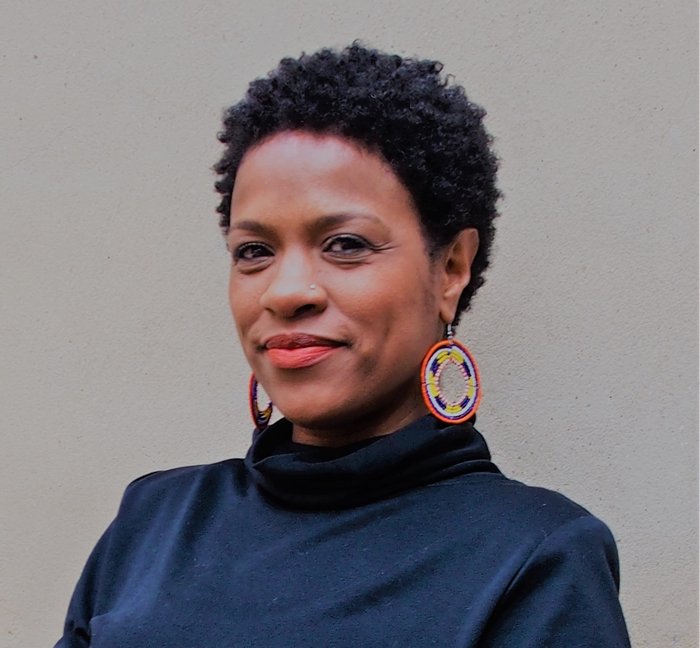
No more excuses!
Interview with Natasha A. Kelly
When we talk about feminism in Germany, the Black perspective and all its achievements are often left out of the conversation, says author, curator, and filmmaker Natasha A. Kelly. That is why her book “Schwarzer Feminismus” [“Black Feminism”] collects a number of fundamental texts by Black feminists. In this interview, Kelly explains why feminism is not conceivable without also taking racism into consideration, and what Black female authors have achieved from the mid 19th century until today.
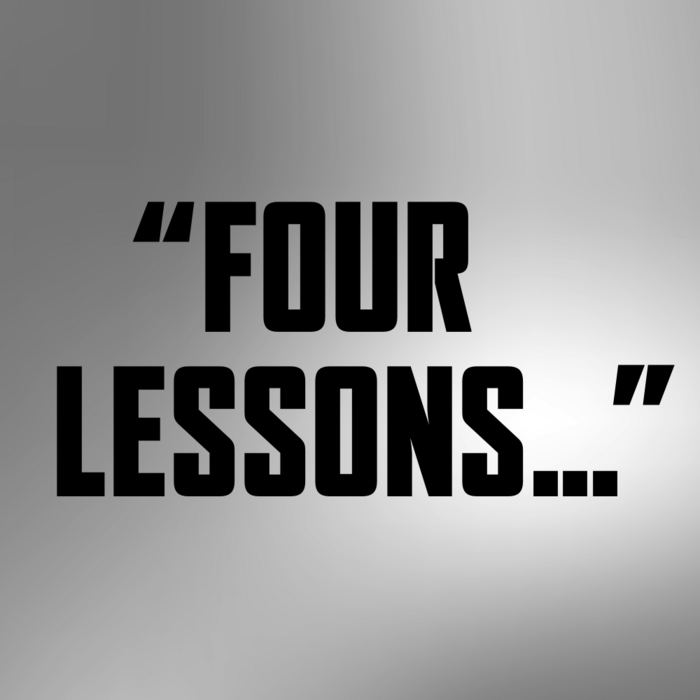
The 4 lessons Eastern Europe teaches us about tectonic shifts at global LGBT+ frontlines
On occasion of the festival “The Present Is Not Enough – Performing Queer Histories and Futures” (20.–30.6. im HAU) we ask: Which narratives are still missing when we address queer history and histories? Maxim Eristavi, an openly queer journalist from Ukraine, observes how LGBTIQ* communities expand safe space locally. At the same time, with regard to all of Eastern Europe he has to state: In the age of globalization, digitalization, worldwide waves of migration and transnational hate movements the suppression of LBGTIQ* lives is becoming more and more complex ...
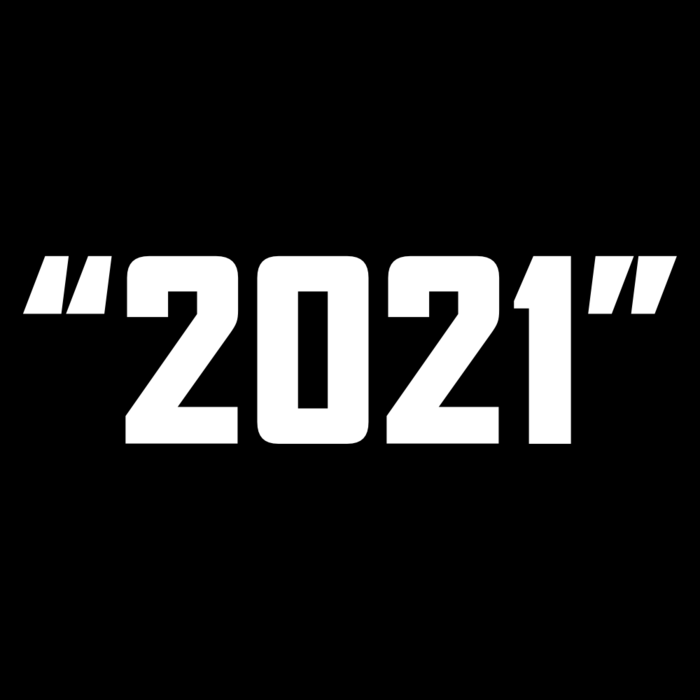
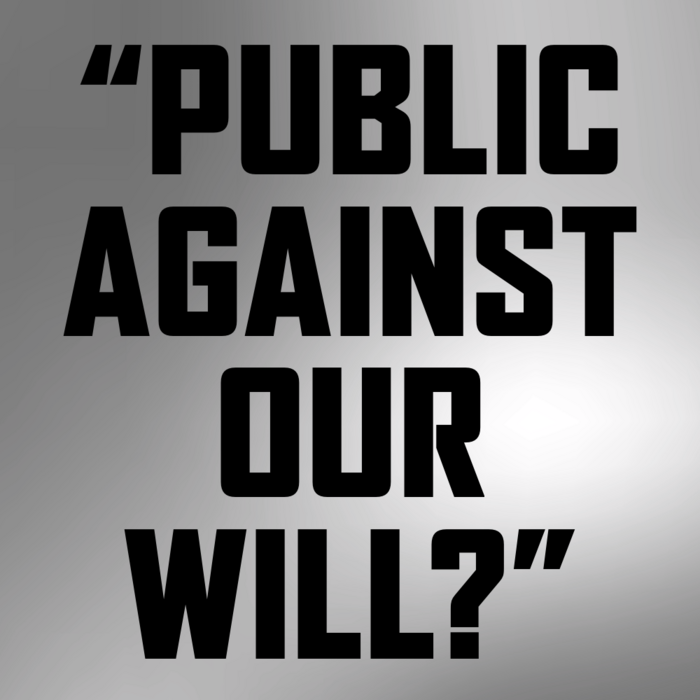
The caring gaze of Leviathan, the “pink files” from 1980s Poland, and the issue of privacy.
Before “Hiacynt” the homosexual share of the Polish population was practically invisible to the state. Between 1985 and 1987 extensive police and secret service operations were carried out under this flowery name in order to control the “unknown” share of gay men in the population. Cultural philosopher Ewa Majewska visited the archive and read the files again. In her essay she explains what role the private sphere plays for queers in Poland and what it has to do with state “care”.
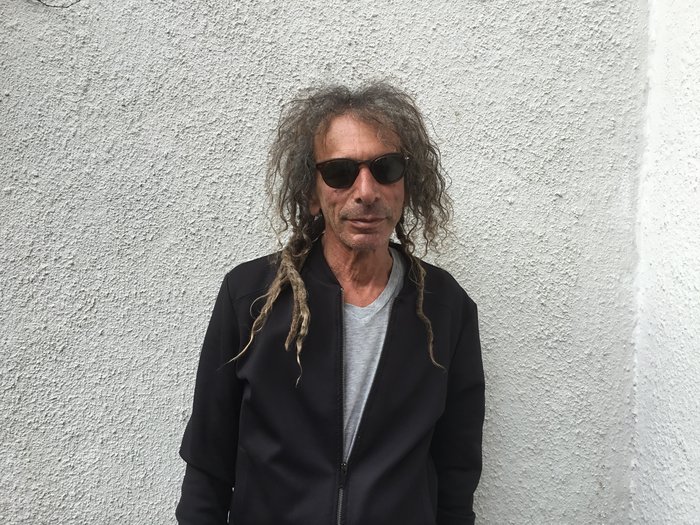
“An orchestrated delirium”
Thoughts on “Rolling” by Michael Laub
“‘Rolling’ is like an orchestrated delirium. It’s also totally subjective rather than academic”, says Michael Laub about his latest work. The Belgian theatre maker combines around 200 film quotes with video, theatre, dance and music to create a complex personal reflection on the relation between the fields
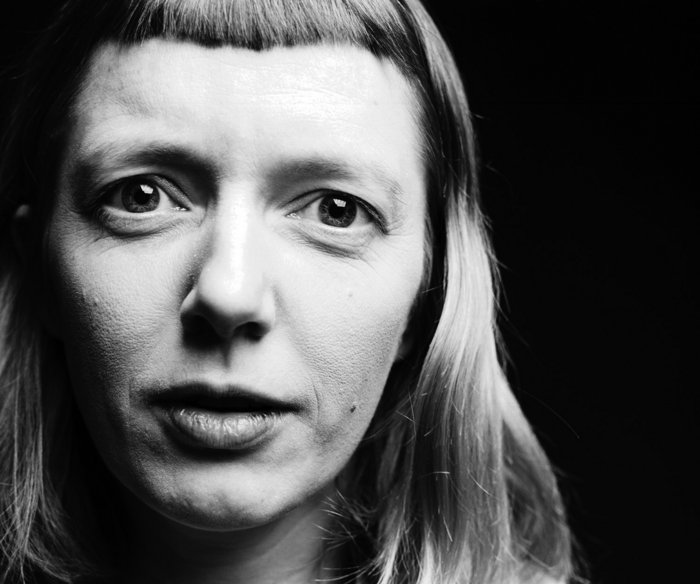
Like a chain reaction
Isabelle Schad in conversation
The new work “Reflection” by Isabelle Schad will premiere at HAU at the end of May. The choreographer completes her trilogy about collective bodies with this piece. In the interview she speaks about her research on movements and the stages at HAU1 and HAU2.
